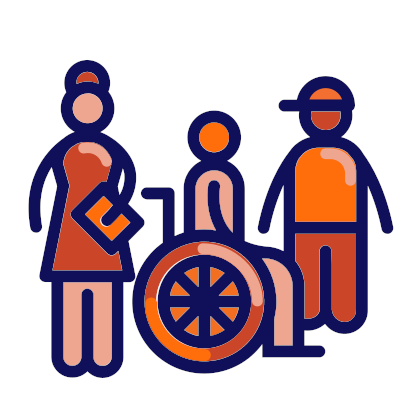Dealing with propaganda, misinformation and fake news

It is vital for schools to provide students with a solid education on media and information literacy as part of the curriculum.
Teachers must be well-trained in the subject to empower students with the necessary competences to critically understand and assess information reported by all forms of media.
Projects in partnership with national and local authorities and media organisations are encouraged.
Facts & figures
Two thirds of EU citizens report coming across fake news at least once a week.[1]
Over 80% of EU citizens say they see fake news both as an issue for their country and for democracy in general.[2]
Half of EU citizens aged 15-30 say they need critical thinking and information skills to help them combat fake news and extremism in society.[3]
What is propaganda, misinformation and fake news?
The terms ‘propaganda’, ‘misinformation’ and ‘fake news’ often overlap in meaning. They are used to refer to a range of ways in which sharing information causes harm, intentionally or unintentionally – usually in relation to the promotion of a particular moral or political cause or point of view.
It is possible to separate out three clearly different uses of information which fall into this category:
- Mis-information - false information shared with no intention of causing harm
- Dis-information - false information shared intentionally to cause harm
- Mal-information - true information shared intentionally to cause harm.[4]
Although none of these phenomena are new, they have taken on new significance recently with the widespread availability of sophisticated forms of information and communication technology. The sharing of text, images, videos, or links online, for example, allows information to go viral within hours.
Why is propaganda, misinformation and fake news important at school?
Since information and communication technology is so central to their lives nowadays, young people are particularly vulnerable to propaganda, misinformation and fake news. Young people spend a significant amount of their time watching television, playing online games, chatting, blogging, listening to music, posting photos of themselves and searching for other people with whom to communicate online. They rely heavily on information circulated online for their knowledge of the world and how they perceive reality. Many parents do not have sufficient technical competence to keep up with their children’s online activity, or educate them about the risks they might be facing. Schools, therefore, have a duty to provide young people with the critical and information skills which they cannot access at home.
“The significant rise of fake news as propaganda in recent years makes it critical that students have the skills they need to identify truth and discern bias.”[5]
The ability to respond critically to online propaganda, misinformation and fake news is more than a safe-guarding tool, however, it is also an important democratic competence in its own right. Analytical and critical thinking, and knowledge and critical understanding of the world, including the role of language and communication lie at the heart of the Council of Europe Reference Framework of Competences for Democratic Culture. They are central to Digital Citizenship Education and Media and Information Literacy.[6]
“School is the one place where it is absolutely crucial to train future citizens to understand, to criticise and to create information. It is in schools that the digital citizen must begin and maintain constant critical thinking in order to attain meaningful participation in his or her community.”[7]
The ability to handle off-line as well as online propaganda, misinformation and fake news is also a key skill in a number of other school subjects, e.g., History, Social Studies, Science, Religious Studies and Art. Young people may study the use of nationalistic and patriotic slogans, or so-called ‘atrocity propaganda’ in WW1 in History, for example; or art forms designed to support particular ideologies in Art lessons.
Another area in which information and communication technology is becoming an issue for schools is through adverse comments made about teachers and schools on social media. Schools are finding that parents and others increasingly turn to social media when they have a dispute or disagreement with their school, e.g., over school rules, school policies, or staff behaviour. How to handle online critical or defamatory comments or campaigns of this sort has become a matter of concern for leaders and managers in some schools.[8]
What are the challenges?
There are a number of challenges facing schools wishing to take propaganda, misinformation and fake news seriously as an educational or social issue:
- Teachers’ own online activity and area of experience is often quite limited and frequently lags behind that of their students. This can make them reticent to take on this area of teaching and learning without a significant commitment to professional development.
- The speed with which technology and young peoples’ online activity changes makes it difficult for teachers to keep up-to-date with recent developments. Even professional development programmes can go rapidly out-of-date.
- It can be difficult finding a discrete slot in the school timetable where issues relating to the creation and sharing of information can be taught. While aspects may be raised in a number of subjects, it can be a problem finding a space in an over-full curriculum where the phenomenon can be dealt with head-on as an issue in its own right.
- The description ‘fake news’ does not mean there is such a category as ‘true’ news. All news is a selection and written to suit a particular audience for a particular purpose. Providing the depth of analysis and sophisticated skills that do justice to this topic can be a challenge for some schools, especially in terms of teacher competence and training.
“States should take measures to promote media and digital literacy, including by covering these topics as part of the regular school curriculum and by engaging with civil society and other stakeholders to raise awareness about these issues.”[9]
How can schools get active?
Providing training for teachers on media and information literacy is the key to raising the profile of the issue in schools. Even though it may have a tendency to date, training can at least alert teaching staff to the importance of this area of learning for their students. The more important teachers see the area, the more they will feel the need to continuously up-date their skills themselves.
While it is important to recruit as many teachers as possible to this work, it can be more effective in the long run to start by appointing an individual teacher, or a small team, to lead on media and information literacy in the school. This element of specialist expertise can be charged with:
- Keeping staff up to date with new developments in information and communication technology
- Training them in strategies for handling propaganda, misinformation and fake news
- Helping them integrate these issues into the curriculum of different subjects
- Leading on school-policy development and action planning in this area.
In addition to these sorts of developments, there are a number of other initiatives a school can take to meet the challenges of the rapidly changing world of online propaganda, misinformation and fake news. These include:
- Special days or events in school on the subject of propaganda, misinformation or fake news as a way of overcoming the problems of an over-crowded formal curriculum
- Peer education initiatives in which older students instruct and counsel younger students in the safe handling of information they access in the media
- Partnerships with outside professionals or companies with expertise in this area, e.g., journalists, IT companies, universities
- Virtual links with schools in other regions or countries enabling students to get a different perspective on news and current affairs
- Recruiting parents with expertise in information and communication technology to help with school policy development or work alongside teaching staff to enrich student learning.
[1] Flash Eurobarometer 464 , 2018
[3] Flash Eurobarometer 455, 2018
[4] Wardle & Derakhshan, H., 2017. Information Disorder: Toward an interdisciplinary framework for research and policy making. Strasbourg, France: Council of Europe.
[5] When is fake news propaganda?, Facing History and Ourselves, 2018
[6] Digital Citizenship Education Handbook, 2019
[8] Council of Europe: Managing Controversy: a whole school training tool, 2017
[9] OSCE: Joint declaration on freedom of expression and “fake news”, disinformation and propaganda
 Resources on Dealing with Propaganda, misinformation and fake news
Resources on Dealing with Propaganda, misinformation and fake news
 Related schools projects
Related schools projects
Address: Tršova 27
Country: Montenegro
Project: Digital citizen
 Working language during the project:
Working language during the project:
- Montenegrin
 Themes of the Council of Europe project “FREE to SPEAK, SAFE to LEARN - Democratic Schools for All” covered:
Themes of the Council of Europe project “FREE to SPEAK, SAFE to LEARN - Democratic Schools for All” covered:
- Making children’s and students’ voices heard
- Addressing controversial issues
- Preventing violence and bullying
- Dealing with propaganda, misinformation and fake news
- Tackling discrimination
- Improving well-being at school
 Competences from the Reference Framework of Competences for Democratic Culture (CDC) addressed and where / how they were integrated:
Competences from the Reference Framework of Competences for Democratic Culture (CDC) addressed and where / how they were integrated:
- Valuing human dignity and human rights
In round tables, workshops-peer education, collecting the necessary material for a guide/brochure, designing and implementing a show by students. - Cooperation skills
In round tables, workshops-peer education, collecting the necessary material for a guide/brochure, designing and implementing a show by students. - Civic mindedness
In round tables, workshops-peer education, collecting the necessary material for a guide/brochure, designing and implementing a show by students. - Knowledge and critical understanding the world: politics, law, human rights, culture, cultures, religions, history, media, economies, environment, sustainability
In round tables, workshops- peer education, collecting the necessary material for a guide/brochure, designing and implementing a show by students.
 Target group age range:
Target group age range:
- 15 - 19
 Level of education:
Level of education:
- Upper secondary education
Short description of the project:
With this project, students and teachers will improve their digital competences, parents and the wider community will understand the importance of developing digital competences. Students will develop digital competences, they will become media literate and take into account anti-discrimination attitudes online.
We will send a written notice to all local media (portals, Pljevlja`s newspapers and Pljevlja TV) about all project activities and the implementation plan.
We will organize round tables online, using viber groups for parents and students of our school. Due to the new epidemiological situation and the limited number of participants in the viber group, we will organize 16 online round tables (for the 16 classes we have in the school). It will be a mini round table, where we will introduce students and their parents to the project and planned activities
Four workshops - peer education, we will also organize online, using the application Microsoft Teams for one class from all four classes of our school. We will turn the new situation to our advantage, because students will see in a practical way how important it is to be a digitally educated citizen.
Students will begin to collect all necessary material for the development of the guide/brochure, under the supervision of a professor-mentor. We will make an electronic version, and later a printed one.
We will also organize a round table for teachers of our school through the Microsoft Teams application and inform them about project activities and the importance of digital citizenship.
We’ve already established cooperation with the Secretariat for Social Activities/Municipality of Pljevlja. We will formalize the cooperation by signing a memorandum of cooperation between our school and the Secretariat, which will provide help and support for the promotion of the project in the wider local community.
Students will design and implement a TV broadcast, taking care not to violate the prescribed epidemiological measures. The broadcast will be a kind of collage because we plan to record everything we did and put it together in one suitable TV broadcast.
The project evaluation will be carried out online. We will get feedback from students and their parents.
At the end of the school year, we will have the teachers' council to launch a new school section called Digital Citizenship. Under this section, we will continue to work on the promotion of digital citizenship, raising awareness of appropriate communication on the internet and protection of human and minority rights.
 Aims/objectives
Aims/objectives
Goals and outcomes
The aim of the project is to improve the digital competences of students and teachers, to introduce parents to the importance of developing digital competences, as well as the wider local community. The goal is to improve students' digital culture, point out the importance of media literacy and anti-discrimination rhetoric.
 Expected results/outcomes
Expected results/outcomes
With this project, students and teachers will improve their digital competences and parents and the wider community will understand the importance of developing digital competences. Students will develop digital competences, they will become media literate and take into account anti-discriminatory attitudes online.
 Changes
Changes
Improve digital competences of students, teachers and parents.
 Challenges you faced
Challenges you faced
The current pandemic situation.
 Time-frame of the project:
Time-frame of the project:
April 2021.
 Council of Europe materials on citizenship and human rights education used while preparing or implementing your practice:
Council of Europe materials on citizenship and human rights education used while preparing or implementing your practice:
- Reference Framework of Competences for Democratic Culture
- Democratic governance of schools







